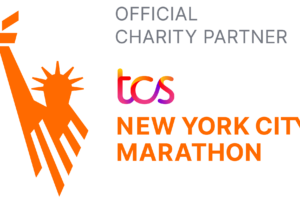Philadelphia, PA – The National Blood Clot Alliance (NBCA), a nonprofit organization focused on improving the understanding and care of people affected by life-threatening blood clots, is pleased to announce the expansion of its Medical & Scientific Advisory Board (MASAB) with the addition of three new medical members.
“NBCA always seeks to fortify the clinical expertise required to successfully implement the organization’s programs and services,” says Alok Khorana, NBCA’s MASAB Chair, Professor of Medicine, Cleveland Clinic Lerner College of Medicine, and Vice Chair for Clinical Services of the Taussig Cancer Institute. “We are fortunate to now have several additional colleagues lend their tremendous expertise to our work with NBCA.”
These newly appointed MASAB members are:
- Caroline Cromwell, MD, Medical Director, Thrombosis Services Program, Mount Sinai-New York City
- Carin Gonsalves, MD, Co-Director of Interventional Radiology, Thomas Jefferson-Philadelphia
- Jeffrey Zwicker, MD, Chief, Section of Benign Hematology, Beth Israel Deaconess Medical Center-Boston
NBCA’s MASAB includes nationally recognized experts in thrombosis and thrombophilia from across the country who help guide the organization’s programs and clinical content. A complete list of MASAB members, including the three new appointees announced by NBCA today, can be found on the organization’s website here: NBCA MASAB.
New Clinical Challenges Amplify Health Disparities
Dangerous blood clots – such as deep vein thrombosis (DVT, or a blood clot in the leg or arm) and pulmonary embolism (PE, or a blood clot in the lung) – impact up to 900,000 people in the U.S. each year, and are responsible for an estimated 100,000 deaths annually. In the past year, there has been a heightened sense of urgency focused on blood clots and clotting disorders, due to an unprecedented incidence of clotting seen among individuals who were critically ill or hospitalized with COVID-19 and the intersection of COVID-19 with the work of clinicians focused on the research and care of DVT and PE.
“As the impact of life-threatening blood clots gained important scrutiny during the COVID-19 pandemic, NBCA began to sharpen its focus on the growing health disparities seen within our community and among those individuals, such as African Americans, who were being disproportionately affected by COVID-19 and blood clots,” says NBCA Board Chair Leslie Lake, who is a PE survivor. “We are delighted, therefore, to welcome this outstanding new group of healthcare professionals to MASAB, as they will help strengthen our commitment to diversity and also our efforts to leverage the health disparities realized among different subsets of individuals in our community affected by blood clots.”
NBCA’s Board of Directors and professional staff look forward to collaborating with the newly appointed MASAB members, particularly as they work to improve recognition for the public health impact associated with clotting and clotting disorders.
The organization also looks forward to collaborating with its new MASAB members relative to its ongoing efforts to advance the awareness for and care of DVT/PE in the field of women’s health.
NBCA is a 501(c)(3), non-profit, voluntary health organization dedicated to advancing the prevention, early diagnosis and successful treatment of life-threatening blood clots, such as deep vein thrombosis, pulmonary embolism, and clot-provoked stroke. NBCA works on behalf of people who may be susceptible to blood clots, including, but not limited to, people with clotting disorders, atrial fibrillation, cancer, traumatic injury, and risks related to surgery, lengthy immobility, childbirth, and hormonal birth control. NBCA accomplishes its mission through programs that build public awareness, educate patients and healthcare professionals, and promote supportive public and private sector policy.
To learn more about blood clots, visit www.stoptheclot.org.
Contact: info@stoptheclot.org






